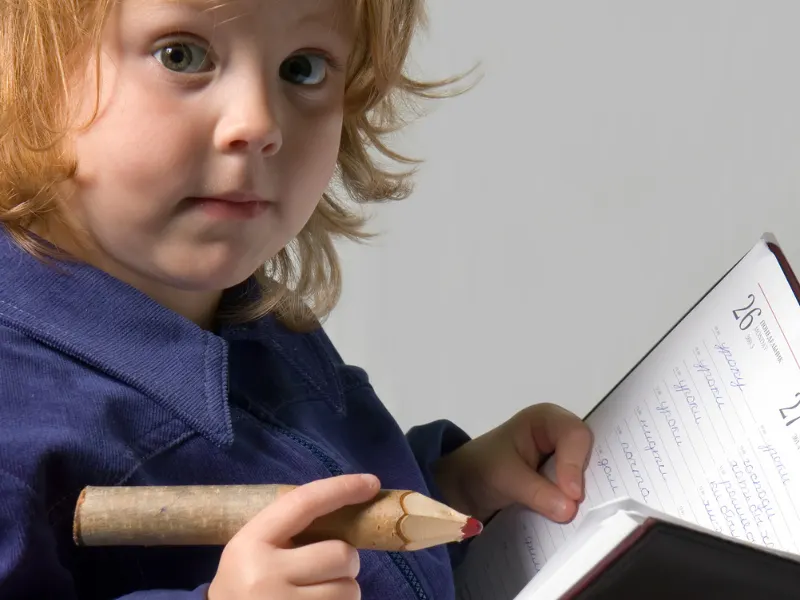Do you have a little one who has been diagnosed with ADHD? Are you feeling a bit overwhelmed and unsure of how to best help them? You are definitely not alone. Parenting a child who has ADHD can be tough, but it is definitely doable. Here are some tips to help make things a bit easier for both of you.
Parenting a child with ADHD frequently feels like trying to control a tornado. It feels impossible to stop it as the tornado leaves a path of destruction while running full steam ahead. Parents without experience parenting kids with ADHD often find themselves feeling hopeless and powerless as the storm rages.
Life doesn't have to feel like that. In fact, there are quite a few things parents can do to help children do everything from focus to sitting still.

#1 – Provide Fidgets
Fidget toys, such as Pop Its, continue to increase in popularity. Part of this is due to the consistent rise in disorders like ADHD and anxiety being seen in children. These toys are tools to help give an energetic or anxious child an outlet. They allow them to fidget to help them pay attention. Because children have that outlet, they are less likely to display disruptive behaviors due to boredom.
#2 – Be Proactive Rather than Reactive with Tantrums
ADHD children are more likely than other children to have behavioral problems, including temper tantrums that can last until they are much older than is usual for this behavior. Instead of parents resigning themselves to dealing with these aggressive outbursts, use these tips to tame tantrums before they take over the day.
#3 – Positivity is Contagious
Attitude can start at home. A child that is placed in an unsupportive environment without positivity often feels negative about many aspects of life. Start every morning with a smile and hug. Remember, each new day is a fresh start.

#3 – Stick to Schedules
Children with ADHD are always on the go, and always ready for the next thing that comes in life. Without structure, they seek stimulation via unruly behaviors that often land them in trouble.
When children know that they are going to have an art session at a specific time, they're more likely to focus on art time coming up instead of being bored and disruptive.
#4 – Food and Sleep
The most common cause of tantrums is being tired and hungry. Make sure to offer little ones snacks throughout the day, and put them to bed on a schedule. This can help reduce behavior problems before they start.
#5 – Spend One on One Time With Children
Kids tend to hear negative things frequently when adults correct them throughout the day. This is an even problem with ADHD children. It can slowly erode away their self-esteem.
Spending quality time with your children daily, even if it's just to play a short game, can remind them that they are loved and that there are great things about them.
#6 – Use a Reward System
Positive reinforcement works wonders for children, especially when compared to negative reinforcement which involves corporal punishment. This is particularly true for children with ADHD, who tend to balk at negative reinforcement and work hard toward goals they want to achieve.
Because of this, using a prize box or reward chart is a great idea. Keep in mind that children with ADHD have particularly short attention spans, so it's important to start slow. Start by offering a small reward twice per day.
Then, after a few weeks of positive behavioral changes, offer a reward once per day. Slowly continue this pattern until the little one gets a reward once per week.
When choosing a reward, it's important to pick something that motivates them. For example, if your little one is known for attention-seeking behavior, offer special time with them as a positive reward. Children who love toys will enjoy getting small trinkets.

#7 – Parents Need to Make Time for Themselves
Parenting a child with ADHD can be exhausting. It doesn't take long for parents to feel overwhelmed and burnt out, which makes it critical for parents to take time away from being a parent.
Think of it as being similar to being on an airplane. When there is a problem, parents are instructed to put on their own oxygen masks first. This isn't because the pilot wants something to happen to the child. It's the opposite.
This system is based on the fact that when parents cannot breathe properly, they are more likely to make an error while putting on the child's oxygen mask.
This same method should be applied to parenting. In order to effectively parent any child, a parent has to take care of themselves first. Parents should make sure that they take time out to rest and do things they enjoy so that they are better able to parent children with ADHD.
#8 – Focus on Strengths
While children with ADHD come with many challenges, they also come with many strengths. Children may be exceptional athletes, dancers, or artists, or excel at playing musical instruments.
A child may sit still for hours to study animals because they want to become a veterinarian. It's important for parents to tell children they are proud of them, and to encourage these areas of strength.
Doing so will help increase self-esteem, give children a better future, and instill a sense of pride in children with ADHD.
#9 – Reach Out for Help
Parenting tips for ADHD come from everywhere. A child with ADHD might have a psychologist, therapist, pediatrician, intervention specialist, and a wide array of other professionals that make up their team.
When in doubt, reach out. Asking for help and advice can help parents find parenting tips for ADHD that will work with their child.
While parenting a child with ADHD can be a challenge for parents, there are parenting tips for ADHD that will make life a little easier to manage. Start with these tips to help regain control of the house, and reach out to professionals for more advice as necessary.
